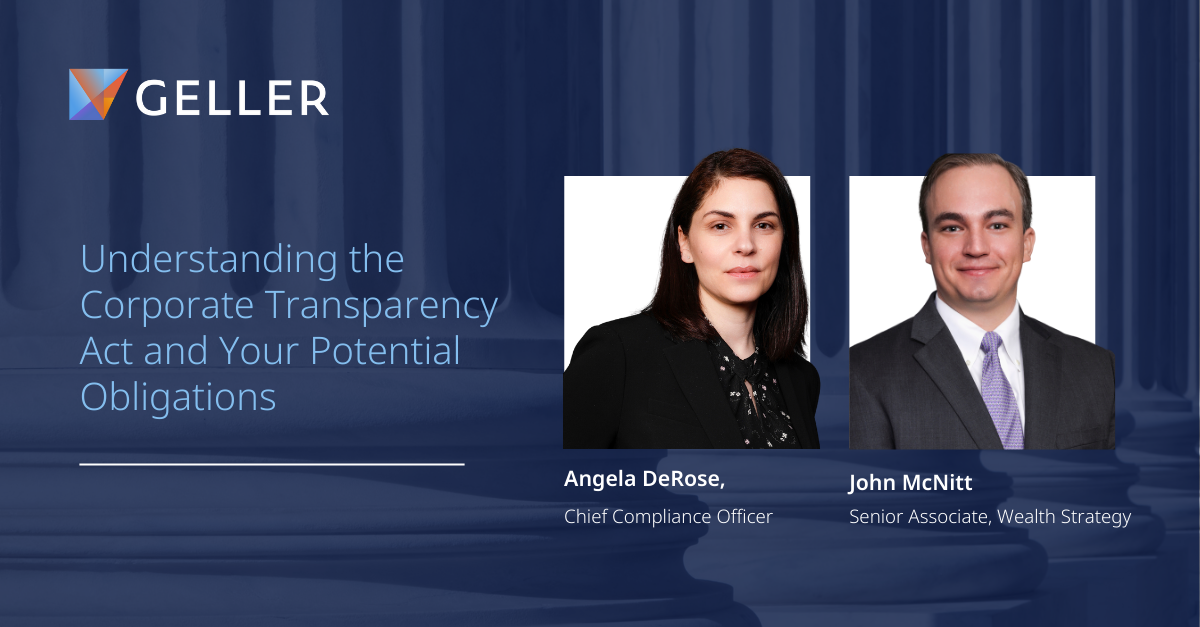Update as of March 1
On March 1, 2024, the US District Court for the Northern District of Alabama issued a decision in which it held that the Corporate Transparency Act (CTA) is unconstitutional. The court held that the CTA does not fall within Congress’s powers to regulate commerce, oversee foreign affairs and national security, or impose taxes and related regulations, and declared that the CTA is unconstitutional because it “exceeds the Constitution’s limits on the legislative branch and lacks a sufficient nexus to any enumerated power to be a necessary or proper means of achieving Congress’ policy goals.” Here is FinCEN’s statement on the ruling.
Currently, the injunction against enforcement only applies to National Small Business United (National) in the Alabama litigation. The government is entitled to continue to enforce the statute against other entities.
The court’s final judgement is narrow, issuing a permanent injunction enjoining the Treasury, (the Defendant, which includes the federal government and any agency or employee acting on behalf of the United States), from enforcing the CTA against National, the Plaintiffs (and presumably members of National).
There will likely be a Federal appeal. The government is expected to appeal to the US Court of Appeals for the Eleventh Circuit and seek an order staying the injunction pending appeal.
What does this mean for you? At this time, companies’ CTA obligations currently remain unchanged from its instatement at the beginning of this year.
The Corporate Transparency Act
Effective January 1, 2024, the Corporate Transparency Act (CTA) requires the disclosure of certain information related to the beneficial owners and controllers of most U.S. domestic entities, and certain non-U,S. domestic entities, to the U.S. Department of the Treasury’s Financial Crimes Enforcement Network (FinCEN). The CTA impacts family offices, family office investment vehicles, trusts, and various other entities operating within the U.S.
Below are a few key points to help you better understand what this means for you.
What is the purpose of the Corporate Transparency Act? Enacted in 2021, the CTA was passed by Congress to enhance transparency in corporate ownership to combat illicit activity including tax fraud, money laundering, and financing for terrorism by requiring a Reporting Company to disclose Beneficial Ownership Information (BOI) to FinCEN.
What is a Reporting Company? A Reporting Company is a corporation, limited liability company, or other company that is created by the filing of a document with the secretary of state or similar office. Depending on the laws of the state, certain partnerships may be considered a reporting company under the CTA. There are 23 types of organizations exempt from the definition of Reporting Company. For example, tax-exempt entities (such as charitable organizations and private foundations) are exempt from reporting. We recommend you speak with your legal counsel or CPA to determine if any of these exemptions are applicable to you.
How do I identify Beneficial Owners? A Beneficial Owner of a Reporting Company is any individual (i.e., natural person) who directly or indirectly exercises substantial control over a Reporting Company or owns or controls at least 25% of the ownership interests of the Reporting Company. There will be at least one, or more than one, Beneficial Owner of an organization.
By way of example, for a family office, the Beneficial Owner could be the principal owner (or owners) of the family office and could also be certain senior management of a family office. For those currently considering which family office structure is best for their situation (and especially those who are considering building a single-family office), understanding these filing requirements is important. In the case of trusts, if a trust owns an interest in a Reporting Company, it may be necessary to disclose the trustee, beneficiary, the grantor or some combination of the foregoing depending on the terms of the trust. We recommend you speak with your legal counsel to determine the Beneficial Owners of a Reporting Company.
What type of information is reported for Beneficial Owners? A Reporting Company must provide information about itself, Beneficial Owners, and Company Applicants. A Company Applicant is the individual who actually files the document that created the Reporting Company and an individual who directs the filing, if different. Information to be reported includes the individual’s full legal name, date of birth, residential address, unique identifying number (passport or driver’s license), copies of identifying documents, and FinCEN identifier (if applicable).
Who has access to the information? Information submitted to FinCEN will be maintained in a secure, nonpublic database available to law enforcement and federal finance-related organizations (e.g., the IRS). This data is not intended to be accessible to the general public.
When are the reporting requirements effective? The BOI reporting became effective for newly registered Reporting Companies on January 1, 2024. Existing Reporting Companies will be required to file with FinCEN starting January 1, 2025.
Since the beginning of the year, there has been ongoing discussion as to what type of professional is best suited to assist in filing with FinCEN. Although Geller Advisors does not currently offer filing services related to the Corporate Transparency Act, we would be glad to connect you with one of our trusted partners who does.
